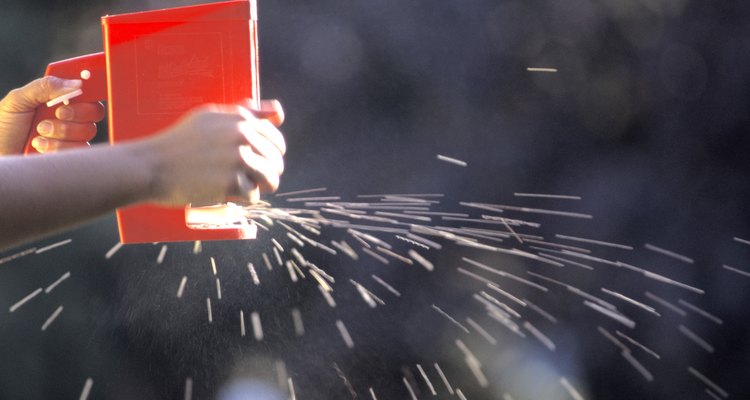
Ingram Publishing/Ingram Publishing/Getty Images
Use of organic fertilizers offers a safer alternative to synthetic options. Their use is tied with the rise in organic farming. According to the U.S. Department of Agriculture, there are over 14,000 organic farms and ranches in the United States. Of that amount, 50 percent used organic fertilizers such as organic mulch and compost to fertilize their crops. Organic fertilizers help plants in several ways whether it is a full-scale farming operation or for your garden plants.
Improve Plant Growth
The basic purpose of organic fertilizers is to improve the soil quality by amending it with nutrients it may lack. The International Fertilizer Industry Association defines fertilizers as materials containing 5 percent of more of the three essential plant nutrients: nitrogen, phosphorus and phosphate.
Nitrogen is vital for plant growth. The atmosphere contains about 78 percent nitrogen, explains the International Plant Nutrition Institute. However, this atmospheric form is not usable by plants. Organic fertilizers provide nitrogen in a usable form, which will help improve plant growth while neither burning roots nor destroying beneficial micro-organisms in the soil.
Disease Prevention
A healthy plant has the biological capacity to fend off some cases of disease. When a plant is stressed due to lack of nutrients, its growth slows. Its ability to ward off disease-carrying bacteria and fungi weakens. Organic fertilizers help prevent diseases by meeting the plants' nutritional needs. This action removes a serious source of stress.
Parasite Prevention
As with disease, organic fertilizers can help plants resist parasitic infestations by insects and other agents. Parasites may attack plants at a site of injury. A healthy plant is actively growing plant tissue during the growing season and can repair the damage, setting up a barrier against parasites.
In addition to healthy growth, organic fertilizers play another role in parasite prevention. A 2006 study in the "Journal of Vegetable Science" found that organic broccoli and other vegetables treated with organic fertilizers attracted less insect pests.
Scorch Prevention
Leaf scorch describes a non-disease, non-parasitic condition in plants, which causes yellowing and damage to leaves of ornamental trees and shrubs. It is caused by unhealthy conditions or drainage issues with soils.
The University of Missouri Extension recommends spring fertilizing of affected plants with a fertilizer high in potash as a means of control. Potash is a fertilizer containing a form of potassium. Wood ash is an excellent organic source of this nutrient.
Related Articles

Advantages of Vermicompost
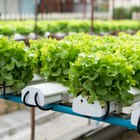
Hydroponic Vegetable Nutrients Vs. ...

L-Lysine for Hair Growth

What Are the Uses of Vermicompost?

How to Treat Anemia in Sheep
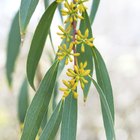
Eucalyptus Oil & Acne
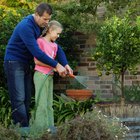
Is Tap or Rain Water Better for Plants?

Potassium Permanganate to Wash ...

Burdock Root for Acne
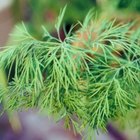
Dill Seed Vs. Dill Weed

Safety Hazards of Acetone
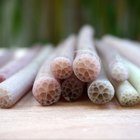
Benefits of Lotus Stem
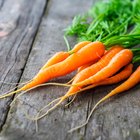
What Is the Difference Between Roughage ...
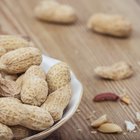
Can Peanut Shells Be Used for Compost?

Uses of Macadamia Nut Shells

What Are the Dangers of Growing ...

Properties of Coconut Fiber

Is Allantoin a Relative of the Lanolin ...

Peppermint Oil for Nasal Congestion

Natural Ways to Get Rid of Scabies
References
- International Fertilizer Industry Association: What Are Fertilizers?
- "The Garden Primer"; Barbara Damrosch; 2003
- "Journal of Vegetable Science"; Organic N Fertilizers and Irrigation Influence Organic Broccoli Production in Two Regions of California; S. Pasakdee et al; 2006
Writer Bio
Chris Dinesen Rogers has been online marketing for more than eight years. She has grown her own art business through SEO and social media and is a consultant specializing in SEO and website development. Her past work experience includes teaching pre-nursing students beginning biology, human anatomy and physiology. Rogers's more than 10 years in conservation makes her equally at home in the outdoors.
Photo Credits
Ingram Publishing/Ingram Publishing/Getty Images